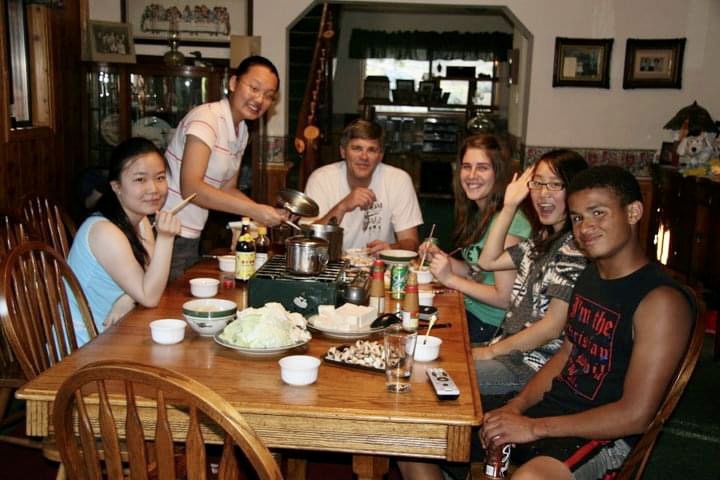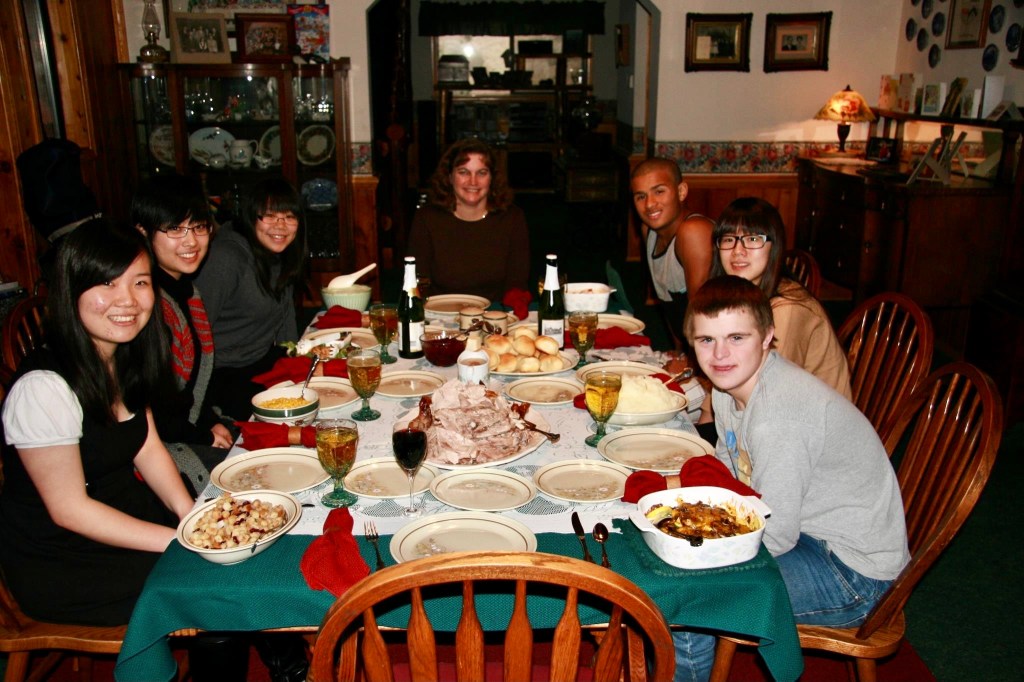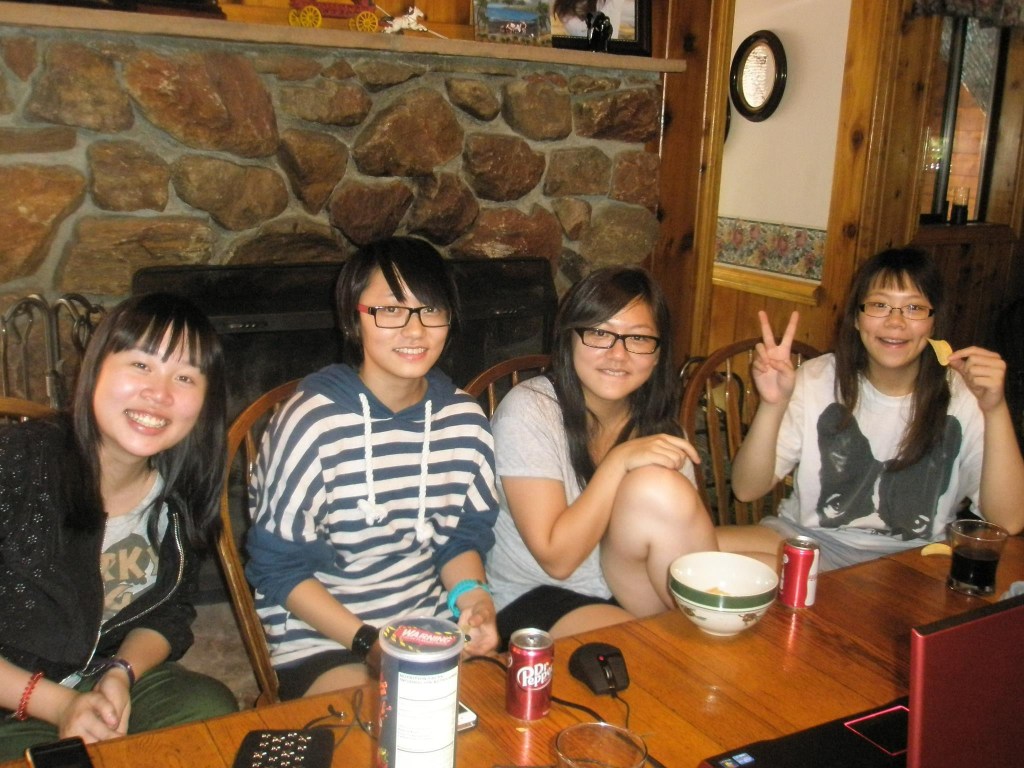
He counted the change carefully, brow furrowed at my question. “Sorry” he shrugged, “my English…not good”. “It’s okay”, I answered, “Welcome to America”. And then, turning back, I looked into his eyes. “I mean it. I’m glad you’re here.”
I thought of my immigrant grandparents, struggling to learn English after long days of bricklaying and housekeeping. They came from a simple farm life to the dirty, overwhelming city that was Cleveland, Ohio in the early 1900’s, from an agrarian existence to a small apartment over a row of shops on a noisy street. Did anyone welcome them?
I looked at this gas station attendant and I thought of my grandparents’ courage and persistence, their struggle to make a home far from all that they had known.
When my children were young I made sure our summers included learning as well as play. One year we memorized the last stanza of the poem at the base of the Statue of Liberty:
The New Colossus
Not like the brazen giant of Greek fame,
With conquering limbs astride from land to land;
Here at our sea-washed, sunset gates shall stand
A mighty woman with a torch, whose flame
Is the imprisoned lightning, and her name
Mother of Exiles. From her beacon-hand
Glows world-wide welcome; her mild eyes command
The air-bridged harbor that twin cities frame.
“Keep, ancient lands, your storied pomp!” cries she
With silent lips.“Give me your tired, your poor,
Emma Lazarus
Your huddled masses yearning to breathe free,
The wretched refuse of your teeming shore.
Send these, the homeless, tempest-tost to me,
I lift my lamp beside the golden door!”
Never forget, I told them, you come from immigrants.
We hosted international students for years. They taught me a lot about the universal need for family. They taught our kids the importance of welcoming the stranger. Our family is infinitely richer from having them share our table all those years.

When I was in high school our small town welcomed two refugee families from Viet Nam, and I befriended the older girl. Her father had been left behind in one of the Communist government’s brutal “re-education” camps, and she mourned him daily. I don’t know if they ever learned his fate.
They had been professionals – doctors and university professors in their native land – but here they became cleaners and cooks as they worked to adjust, to start over. The women made us tea with flowers in it in thanks, smiling and nodding at us as we sipped.
“We are aliens and strangers in the world,” Peter wrote. I feel it keenly lately. Do you?
This sense of sojourn, this ache for home, lives in the breast of all of us. Our sense of self is informed by where we fit on the playground, on the social ladder, in the performance evaluation, in the “likes” and invitations we receive.
So we “nest”, carefully arranging our living spaces, our circumstances and our relationships, and curating our online presence to provide a sense of emotional security in a world often harsh and unsettling.
Some of us include in our spaces only those who support our biases or our preferences; or those who have been born into our circle or have earned membership there.
But the Bible is filled with admonitions to welcome and care for the widow, the orphan and the foreigner. It doesn’t say anything about first determining whether or not they deserve it, or how well they live up to our cultural ideals.

The Israelites were commanded to remember Egypt, that place that symbolized wandering in a foreign land, through a special meal to be celebrated down through the generations. This Passover meal incorporated bitter herbs, in order to remember the bitterness of their bondage.
This was the meal that Jesus ate just before His crucifixion. He tasted the bitter herbs that symbolized our wandering, our searching for home, at His last earthly meal.
“I remember my affliction and my wandering,” the exiled prophet wrote, “the bitterness and the gall. I well remember them, and my soul is downcast within me.”
But then he continues. “Yet this I call to mind, and therefore I have hope: Because of the Lord’s great love we are not consumed, for his compassions never fail.” (Lamentations 3:29-22)
“I am preparing a place for you,” Jesus said, “that you may be with me.” We have a place. A home. We are no longer strangers in that land of eternal belonging, and soon we will step into that everlasting welcome.

So let us remember where we come from. Let us be kind to those who are strangers and aliens in our own land, our own city, our own neighborhood. Let us open our doors, our circles and our hearts because we all have this in common: we are on a journey to another place, exiles together here as we make our way home.
Such beautiful people! Praise God for all of you and for the fruit you bear for His Kingdom!
LikeLiked by 1 person
Thank you so much for this post! I’ve spent my entire life as either a missionary or in some kind of ministry to immigrants. I have always received much more than I have ever given. I’ve been doing it enough time to watch peoples’ stories change and positive ways, especially in the lives of their children.
LikeLiked by 1 person
I have learned so much…
LikeLike
Dear Andrea, it was a blessing that you were the first American family I met when I came here. I enjoy reading your blogs!
Zhuo
LikeLiked by 1 person
Thank you Zhuo! It was so fun to reconnect in Vancouver. We have some great memories of your times with us!
LikeLike
Pingback: Saturday Snippets (July 10) – Chalmers' Blog
I got challenged by this great article, thank you
LikeLiked by 1 person
Thank you for letting me know.
LikeLike
Pingback: Laudable Linkage | Stray Thoughts